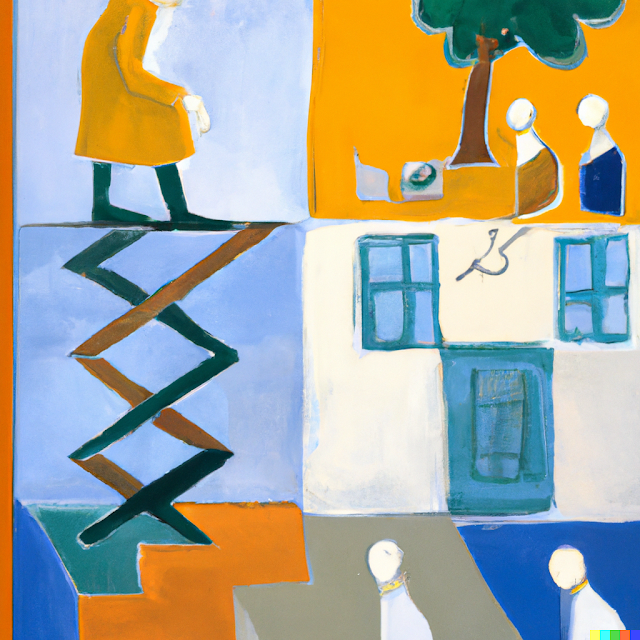How we reflect on our life experiences determines whether they make us wiser
Wisdom is invariably associated with life experience, by both laymen and experts. If it is true that wisdom develops through life experience, how does that work? And what kinds of life experiences are involved? Is it about situations in which we find ourselves more or less spontaneously? Or is it about specific situations that we have to look for specifically? Spontaneously? Or specially searched experiences?
Challenging life events as catalysts for wisdom
Glück & Bluck (2013) thought that challenging life events can be important catalysts of wisdom because they can profoundly change the way you think about yourself and the world. You can think of negative and traumatic events such as a divorce or the death of a loved one, but also positive events such as the birth of a child.
Major life events do not inevitably lead to greater wisdom. You could imagine three types of trajectories that individuals go through after traumatic life events as shown in the picture below (from Weststrate & Glück, 2017).
Dealing with uncontrollable events: growth, adjustment or bitterness
Especially uncontrollable events can contribute to the development of wisdom because they increase awareness of one's own limits and of the changeability and unpredictability of life.Major life events do not inevitably lead to greater wisdom. You could imagine three types of trajectories that individuals go through after traumatic life events as shown in the picture below (from Weststrate & Glück, 2017).
Glück & Bluck suggest that the way we deal with life events determines which path we end up on: growth, adaptation or bitterness.
The MORE(E) model
Glück & Bluck's MORE(E) model specifies 5 factors that contribute to the development of wisdom :- Mastery: Confidence in one's own ability to deal with complexity, uncertainty and changeability.
- Openness: willingness to view situations from multiple perspectives, non-judgmental, willingness to learn from others and from new situations.
- Reflectivity: The motivation to think about complex problems in a complex way to arrive at a deeper understanding.
- Emotion regulation: paying attention to emotions, tolerating ambivalent feelings and being able to deal with emotions according to the situation.
- Empathy: being able to take the perspective of others and take this into account.
Wisdom does not develop by itself, but it can be developed
Wisdom is therefore not fixed but developable. It depends on the situation how wise we react and how we think about and reflect on difficult situations also influences our wisdom. Positive or negative life experiences do not automatically make us wise. This determines how we deal with it ourselves. This also explains that age is not a good predictor of wisdom.Old age does not make us wise. How we ourselves deal with the events in our lives determines our path.
Source: De ontwikkeling van wijsheid


Comments
► A new multilevel framework of wisdom and well-being in response to adversity integrates posttraumatic growth and resilience perspectives. A year-long study (N=499) examined wisdom traits such as intellectual humility, open-mindedness, perspectivism and prosocial aspirations in relation to adversity.
Results showed that self-distanced reflection, emotional and cognitive meaning of adversity, and capitalization were associated with wisdom differences, but only self-distanced reflection predicted wisdom gains over time.
Higher levels of wisdom were associated with higher subjective and relational well-being across individuals, but not within individuals over time. Wisdom is best represented as a network rather than a hierarchy.
The study highlights three methodological shortcomings in previous research: overuse of cross-sectional designs, lack of temporal specificity, and cultural bias. Future research should address these limitations.